Here’s Why You Should Embrace Sales Coaching in Sydney and Thrive!
In today’s increasingly competitive market, every strategy counts. A secret weapon that is surprisingly under-utilised among Sydney’s business circles is sales coaching – a surefire way to transform your business prospects. With an ability to sharpen your salesforce skills and inject dynamism into your business ventures, sales coaching is the cornerstone for unparalleled success. Are you ready to seize the day and propel your business towards unimaginable heights? Let’s discover why embracing sales coaching in Sydney could be the game-changing strategy your business needs.
Sales coaching is an essential tool for businesses in Sydney looking to improve their sales processes and increase revenue. At Dynamo Selling, we customise training programmes focused on developing essential skills like emotional intelligence and mindset philosophy, which can help businesses and sales professionals connect better with clients, close more deals and increase profitability.
Unlocking Growth Through Sales Coaching in Sydney
When it comes to sales coaching, one key benefit is the ability to identify and address individual strengths and weaknesses within the sales team. Each team member possesses unique talents and areas that may need improvement. A skilled sales coach in Sydney can assess these strengths and weaknesses through personalised assessments, observation, and data analysis. By gaining insights into each team member’s abilities and challenges, the coach can provide targeted guidance and support to maximise potential.
Another crucial aspect of unlocking growth through sales coaching in Sydney is the development of effective communication skills. As any successful sales professional knows, effective communication is at the heart of building strong client relationships and closing deals. Through coaching sessions, sales professionals can learn how to craft compelling messages that resonate with clients, understand their needs, and articulate value propositions effectively. With enhanced communication skills, sales teams are better equipped to build trust with clients and exceed their expectations.
For instance, imagine a furniture company in Sydney looking to expand its client base. Through sales coaching, their team learns how to truly listen to potential customers’ desires and aspirations while providing tailored solutions that meet their needs perfectly. Instead of using generic pitch scripts, they focus on understanding client pain points and addressing them with empathy. The improved communication skills acquired through coaching allow the team to establish genuine connections with clients, which ultimately leads to increased conversion rates and revenue growth for the company.
Furthermore, embracing sales coaching in Sydney can unlock growth by nurturing a culture of continuous improvement within the organisation. Sales professionals who undergo coaching are encouraged to embrace a growth mindset and constantly seek opportunities for personal and professional development. They are provided with the tools and strategies to overcome challenges, adapt to changing market dynamics, and stay ahead of their competitors.
Enhanced Client Relationships
Enhanced client relationships are an invaluable outcome of embracing sales coaching in Sydney. When sales professionals receive comprehensive training and support, they naturally become more attuned to the needs of their clients. Through effective sales coaching techniques, they can develop the skills necessary to establish genuine connections and build long-lasting relationships with clients.
One significant aspect of enhanced client relationships is the ability to understand clients on a deeper level. Sales coaches in Sydney incorporate strategies that help sales professionals uncover clients’ motivations, pain points, and specific challenges. This deeper understanding allows sales teams to tailor their approaches and solutions to meet clients’ unique needs effectively. By demonstrating an authentic understanding of clients’ concerns, sales professionals can go beyond mere transactions and create partnerships based on trust and mutual success.
For example, imagine a technology company in Sydney that provides software solutions for small businesses. Through sales coaching, their team gains insights into different industries, businesses’ pain points, and innovations shaping the market landscape. This deep understanding helps them position their software solutions as valuable tools that address specific challenges faced by each business. The result? Stronger connections with clients who feel supported.
Additionally, enhanced client relationships foster loyalty and advocacy. When clients feel heard, understood, and supported by a sales professional who goes above and beyond their expectations, they are more likely to become long-term customers and even ambassadors for the company. Ultimately, through enhanced client relationships fostered by sales coaching, businesses in Sydney can expect increased customer satisfaction levels, higher repeat business rates, positive reviews, and overall business growth.
- According to CSO Insights, companies with a formal sales coaching programme have 63% more quota-achieving sales reps than those who do not.
- Research by the Sales Executive Council indicates that sales coaching can increase a team’s performance by up to 19%.
- A study by the Journal of Personal Selling and Sales Management found that effective sales coaching can lead to an increase in sales performance — in some cases by up to 40%.
Driving Sales Performance
Driving sales performance is a critical aspect of achieving business success. After all, sales are the lifeblood of any organisation, fueling growth and ensuring profitability. But what does it take to truly drive sales performance to new heights?
It starts with understanding your target audience and their needs. Developing an in-depth understanding of your customers allows you to tailor your sales approach and messaging to resonate with them. By effectively addressing their pain points and demonstrating value, you can establish a strong connection with them and build trust.
Successful sales performance also requires strategic planning and effective communication skills. This entails actively listening to your prospects, asking probing questions, and clearly articulating the benefits of your product or service. Effective communication helps build rapport and ensures that potential customers understand how your offering meets their specific needs.
Another key driver of sales performance is having a strong sales strategy in place. This involves setting clear goals, identifying target markets, devising effective marketing strategies, implementing lead-generation tactics, and establishing a robust follow-up system. A well-defined sales strategy provides direction for your efforts and enables you to focus on activities that yield the greatest results.
Additionally, leveraging technology can greatly enhance sales performance. Sales automation tools can streamline processes, improve efficiency, and provide valuable insights into customer behaviour. Analysing data from these tools can help identify trends, optimise sales techniques, and make informed decisions based on real-time information.
Ultimately, driving sales performance is an ongoing process that requires continuous improvement and adaptation. It’s important to regularly review results, analyse performance metrics, and make adjustments as needed. Embracing a culture of learning and professional growth within your sales team fosters innovation and ensures that you stay ahead of the competition.
Role of a Sales Coach in Business Success
In the dynamic world of sales, having a skilled sales team is vital for achieving business success. Sales coaching plays a pivotal role in developing and nurturing the capabilities of individual sales professionals while driving overall team performance.
A sales coach acts as a mentor and guide, imparting knowledge, skills, and strategies to help salespeople excel in their roles. They provide personalised support tailored to the specific needs of each team member. Through one-on-one coaching sessions, they address individual challenges, offer constructive feedback, and identify areas for improvement.
However, the role of a sales coach extends beyond just training and instruction. They also serve as motivators, instilling a sense of confidence and enthusiasm within the sales team. By boosting morale and cultivating a positive mindset, sales coaches create an environment where individuals are inspired to reach their full potential.
Sales coaches also play a significant role in refining sales techniques and strategies. They analyse the strengths and weaknesses of their team members, identifying opportunities for skill development and growth. Through targeted coaching interventions, they assist in honing effective communication skills, improving objection-handling techniques, and enhancing negotiation prowess.
An expert and competent sales coach acts as a bridge between management and the sales team. They communicate organisational goals effectively while ensuring that the needs and concerns of individual team members are acknowledged. This alignment fosters collaboration, enhances productivity, and strengthens the connection between the sales force and other departments within the company.
Guidance and Insights
Imagine a sales representative in Sydney who has been struggling to close deals despite putting in significant effort. With the guidance of a skilled sales coach, they receive personalised feedback on their sales techniques. The coach helps them identify areas where they can improve their communication skills, understands client needs more effectively and handles objections with finesse. Armed with these insights and guidance, the salesperson becomes more confident, persuasive, and successful in their interactions with clients.
Sales coaching also offers an opportunity for continuous learning and professional growth. Coaches bring industry expertise and up-to-date knowledge of best practices, market trends, and emerging strategies. They share valuable insights gained from years of experience working with various clients across different industries. This knowledge transfer empowers sales teams to adapt to evolving customer demands, stay ahead of the competition, and seize opportunities.
By embracing sales coaching in Sydney, businesses can foster a culture of continuous improvement that permeates throughout their organisation. Sales professionals who receive ongoing guidance are motivated to push their boundaries, take risks, and embrace new approaches. This mindset encourages innovation and creativity in problem-solving, leading to enhanced productivity and revenue growth. Moreover, incorporating coaching into the company’s DNA demonstrates a commitment to investing in employee development and well-being.
At Dynamo Selling, we integrate sales coaching into our programs so we can analyse your ongoing progress and the entire sales process from exposure, acquisition, lead generation and conversion. Our sales coaching process will review your sales processes, uncover hidden potential within the team and nurture individual talents. By harnessing the power of guidance and insights that sales coaching offers, businesses in Sydney can propel their sales teams to new heights of success.
Building a Supportive Environment for Sales Coaching in Sydney
Creating a supportive environment for sales coaching in Sydney is crucial for maximising its effectiveness and impact. Here are some key steps businesses can take:
- Leadership Buy-In: It starts from the top. Leaders must recognise the value of sales coaching and sales training courses and actively support its implementation across the organisation. When leaders prioritise coaching as an essential component of professional development, it sets the tone for the rest of the team.
- Clear Communication: Transparent communication about the goals and benefits of coaching helps employees understand its purpose and how it aligns with their personal growth and career progression. This clarity fosters trust and engagement among team members.
- Resource Allocation: Providing adequate resources such as time, budget, and technology demonstrates a commitment to coaching excellence. Allocating dedicated time for coaching sessions and investing in training programmes ensures that employees have access to the necessary tools and support they need to succeed.
- Collaborative Culture: Encouraging collaboration and peer learning cultivates a supportive environment where team members can exchange ideas, resolve issues, share experiences, and learn from one another. This collaborative culture promotes continuous improvement and knowledge sharing.
- Measurement & Evaluation: Establishing clear metrics and performance indicators allows both coaches and employees to track progress, measure growth, and identify areas for improvement. Regular evaluations reinforce accountability and motivate individuals to strive for excellence.
Implementing Effective Sales Strategies for Your Team
Implementing effective sales strategies is crucial for driving business success and maximising revenue. By providing your sales team with the right tools, training, and guidance, you can empower them to excel in their roles and achieve outstanding results. Let’s explore the key steps to implementing effective sales strategies for your team.
Firstly, it’s essential to have a clear understanding of your target market and customer persona. To develop an effective sales strategy, you need to identify who your ideal customers are, what their pain points and needs are, and how your product or service can address those needs. This information will serve as a foundation for crafting compelling sales messages and tailoring your approach to meet the specific requirements of different customers.
Next, focus on aligning your sales efforts with your overall business goals. Define clear objectives that you want your sales team to achieve, such as revenue targets or market share growth. These goals should be specific, measurable, attainable, relevant, and time-bound (SMART). Setting challenging yet realistic targets will motivate your team to perform at their best and drive them towards success.
Once you have established goals, you need to equip your sales team with the necessary skills and knowledge. Provide comprehensive sales training programmes that cover various aspects such as product knowledge, objection-handling techniques, effective communication skills, negotiation strategies, and closing tactics. Encourage ongoing learning and development through workshops, webinars, or mentorship programmes. This continuous improvement mindset ensures that your team remains up-to-date with industry trends and best practices.
In addition to training, it’s crucial to foster a positive sales culture within your organisation. Sales coaching plays a vital role in enhancing performance and driving continuous improvement. At the same time, sales coaches can provide personalised support, guidance, and feedback to individuals on your team. They can help identify strengths and areas for improvement, suggest strategies to overcome challenges, and celebrate successes. This one-on-one coaching approach helps build confidence, motivation, and resilience among team members.
Indeed, implementing effective sales strategies through sales coaching can empower your sales team to achieve remarkable results, drive business success, and unlock new heights of profitability. Get the most out of your sales coaching and sales training experience with Dynamo Selling! Our years of world-class facilitation in sales programs and consultation have earned us the trust of many business clients and have been converted into a bouquet of awards and recognition as a mark of our success through the years.




